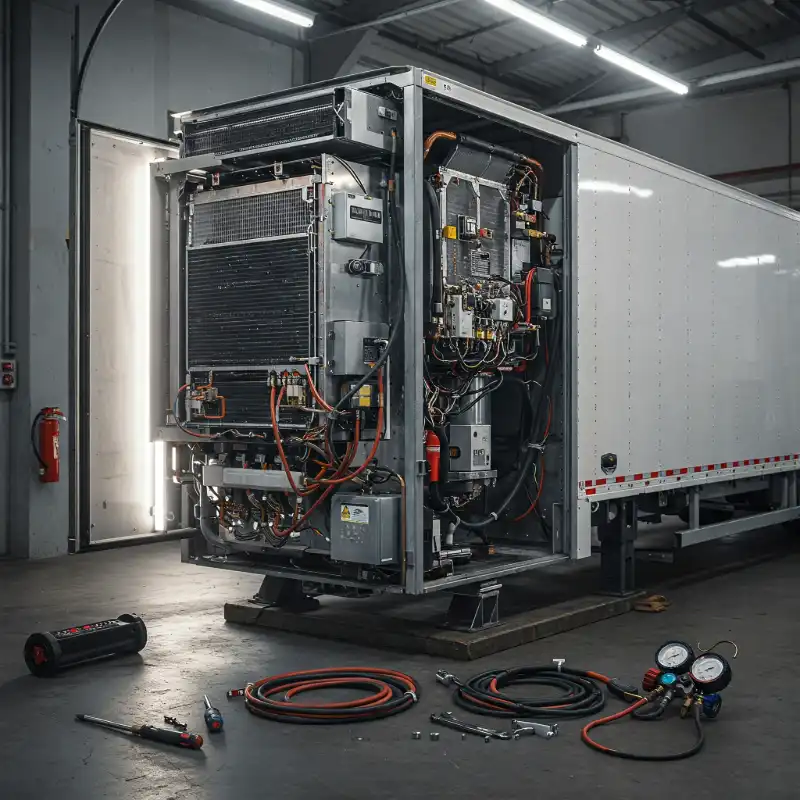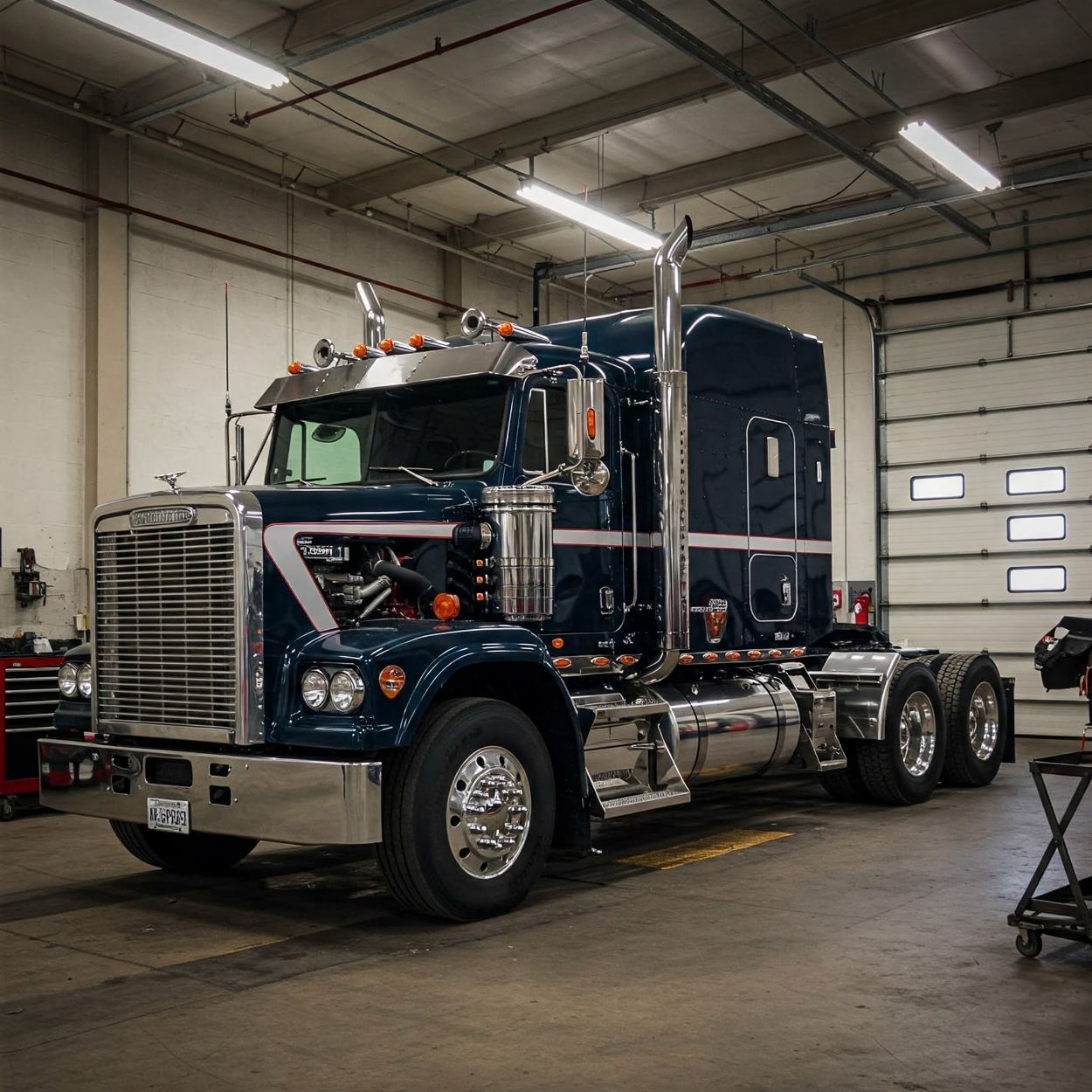
Greetings from Integrity Fleet in Conroe, Texas! As the mercury dips and Jack Frost starts nipping at our heels, it’s essential to turn our attention to a critical aspect of heavy-duty truck care – the tires. You see, when it comes to traversing icy roads and braving snowy conditions, your truck's tires are not just rubber hitting the road; they're your first line of defence. So, let's dive into the nuts and bolts of cold-weather tire care and keep those wheels turning safely all winter long.
Choosing the Right Tires for Snowy Conditions
In the thick of winter, not just any tire will do for your semi-truck. When snow and ice become your main road companions, it’s crucial to have tires that can handle the extra challenge. Winter tires, with their deeper treads and specialized rubber compounds, are designed to stay flexible in cold temperatures, providing better grip and handling. It’s like choosing the right pair of shoes for a hike; you wouldn’t wear flip-flops to climb a mountain, would you? Similarly, equipping your truck with the right tires in snowy conditions is a fundamental step in winter safety.
Tackling Tread Troubles
Now, let’s talk treads. Regularly inspecting your tires for uneven wear is not just about keeping them in shape; it’s about ensuring your safety on slippery roads. Uneven tread wear can be a telltale sign of alignment issues, improper inflation, or even suspension problems. It's like reading the tea leaves at the bottom of a cup – they tell a story you shouldn’t ignore. Addressing these tread and alignment issues promptly can prevent a cascade of other problems and keep your truck handling properly when you need it most.
The Role of Chains in Icy Weather
When the going gets icy, sometimes even the best winter tires need a helping hand. That's where tire chains come into play. Chains add an extra layer of grip and can be a real lifesaver in incredibly icy conditions. It’s akin to giving your tires a set of cleats to navigate a frozen football field. However, it’s crucial to use them correctly – improper installation can damage both the tire and the road, not to mention reduce the effectiveness of the chains.
Can Ice Chains Be Used On Dry Pavement?
Ice chains, when used on pavement, can be a bit of a double-edged sword. They are designed primarily for use on ice and snow-covered roads, where they provide essential traction. When you use chains on clear pavement, however, several issues can arise.
Firstly, driving with chains on bare pavement can cause significant wear and tear both to the chains and the road surface. The chains can wear down quickly when they're not cushioned by snow or ice, reducing their effectiveness and lifespan. Moreover, they can also damage the pavement, leading to costly repairs.
Secondly, chains on dry pavement can negatively impact your driving experience. They can make handling more challenging, decrease your ability to brake efficiently, and generally create a less smooth and more noisy ride.
It's always recommended to use chains only when necessary - that is, when driving on snow or ice-covered roads. Once you're back on clear pavement, it's wise to remove them to maintain their condition, ensure your safety, and protect the road surface. Regularly monitoring road conditions and adjusting your equipment accordingly is key in winter driving.
Beyond Tires: Cold Weather Maintenance Essentials
While tires are pivotal, they’re just one piece of the winter puzzle. Other components like your battery, coolant system, and brakes need equal attention. Cold weather can be tough on batteries, and the last thing you want is a truck that won’t start in sub-zero temperatures. Ensuring your coolant system is ready to handle the cold and keeping your brakes in top condition are also vital for safe winter driving. Think of it as preparing for a winter expedition – every part of your gear needs to be up to the challenge.
Safe Driving Habits in Winter Conditions
Lastly, even the best-prepared truck needs a wise driver behind the wheel. Adapting your driving habits to winter conditions is crucial. This means reducing speed, allowing for longer stopping distances, and avoiding sudden maneuvers. It’s about respecting the road and the weather, much like a sailor respects the sea. Patience and caution are your best co-pilots in navigating the frosty thoroughfares.
Final Thoughts From Integrity Fleet
At Integrity Fleet in Conroe, Texas, we understand that preparing for winter is not just about ticking boxes; it’s about ensuring the safety and reliability of your heavy-duty truck through the harshest of seasons. From selecting the right tires to maintaining your entire vehicle and adopting safe driving habits, every step is a stride towards a safer winter journey. So, as the cold sets in, remember a well-prepared truck is the key to conquering those icy roads with confidence. Stay safe, and let’s keep those wheels turning smoothly, no matter what Old Man Winter throws our way!
More Articles


Top 7 Ways to Keep Your Grocery Fleet Running Smoothly This Summer
Top 7 Ways to Keep Your Grocery Fleet Running Smoothly This Summer
Prevent breakdowns and keep your grocery fleet running efficiently in summer. Learn how to protect engines, tires, refrigeration units, and drivers from extreme heat.


7 Errors in Refrigerated Truck Maintenance and Their Fixes
7 Errors in Refrigerated Truck Maintenance and Their Fixes
Avoid costly breakdowns and cargo loss with proper refrigerated truck maintenance. Learn about the top 7 reefer maintenance mistakes and how to fix them.


What Are the Benefits of Telematics in Managing Food Delivery Fleets?
What Are the Benefits of Telematics in Managing Food Delivery Fleets?
Discover how telematics can optimize your food delivery fleet in Texas. Reduce fuel costs, improve efficiency, enhance safety, and ensure faster deliveries with real-time tracking and smart analytics.
